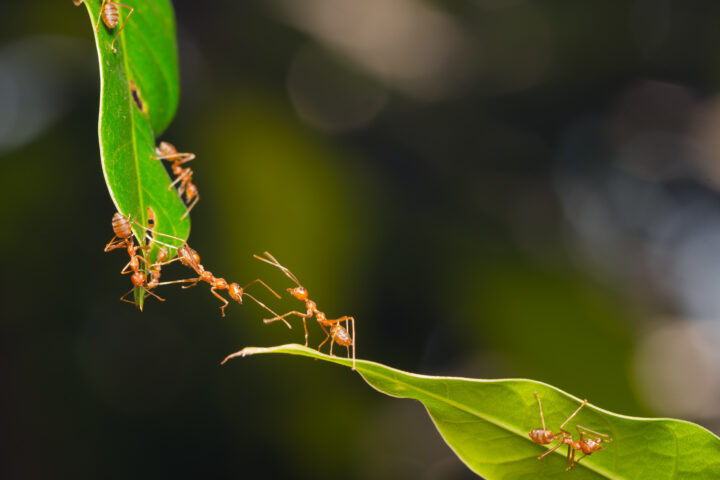«The fear of genetically modified plants is unwarranted»
Genetically modified plants have garnered a negative reputation, but with new methods, they can hardly be distinguished from conventionally bred plants, as Anke Fossgreen argues in the 'Tages-Anzeiger.'
Thursday, May 25, 2023
The umbrella organization of organic agriculture, Bio Suisse, unanimously decided at its delegates' meeting on Tuesday to continue to refrain from using genetic engineering. The result is not surprising, but disappointing. It demonstrates that organic farmers are disregarding the advancements made in modern breeding research and perpetuating the negative perception of genetically modified food.
Ironically, it is precisely future genetically modified plants that offer possibilities that are important for organic farming as well. Modified plants can, for example, be resistant to diseases, reducing the need for pesticides. They can also be more durable, thereby reducing food waste, or they can withstand drought, which is crucial in the face of climate change.
However, why do many consumers refuse to eat genetically modified plants or animals fed with such plants? These plants, such as wheat, maize, and soybeans, are viewed with suspicion because their genetic makeup has been altered in the laboratory. Yet the fear of 'foreign genes' is unfounded. When we consume an apple, we ingest the fruit's genes; when we eat bread, we consume the grain's genes, and when we have a schnitzel, we consume the genes of a pig. Does this make us sick or alter us in any way? No. During the digestive process, our bodies break down not only proteins, carbohydrates, and fats but also foreign genetic material, utilizing it to sustain ourselves.
The discussion is no longer about the modified plant but the process by which it is produced.
Furthermore, genetic engineering has made significant strides. Today's genetically engineered plants are virtually indistinguishable from conventional breeds. This is achieved through genome editing techniques like the Crispr/CAS method, where the genetic material is slightly modified and optimized, akin to using a scalpel.
Those who previously felt uneasy about consuming genetically modified plants due to their perceived difference from conventionally bred plants no longer have a valid argument. Therefore, the discussion is no longer about the modified plant itself but rather the process by which it is produced.
As a reminder, since 1964, genetic modifications have been introduced into the genome of plants in Europe and elsewhere using methods that may sound alarming. Plants were bombarded with radioactive substances in fields and gardens, and now in laboratories. According to the International Atomic Energy Agency, more than 3300 plant varieties have been created through this so-called mutagenesis and have been approved in 70 countries. Some of these varieties are still used and consumed today, including many types of grain, rice, and citrus fruits, such as red grapefruit, which is also sold as an organic product.
In comparison, modern genetic engineering techniques are remarkably gentle and elegant.
While this may initially sound concerning, these plant varieties are not inherently radioactive simply because radiation was used in their production. Similarly, new plant varieties created through mutagenesis are not chemically poisoned, as the mutagenesis process can also be triggered by chemicals. These methods, perceived as 'natural' breeding, are employed to create new varieties.
In comparison, the methods currently discussed to enhance the properties of plants through modern genome editing techniques are remarkably gentle and elegant.
Furthermore, it is worth noting that the taste and nutrient content of plants can also be specifically optimized through these methods. Let us embrace the opportunity to experience these new varieties.
Kindly note:
We, a non-native editorial team value clear and faultless communication. At times we have to prioritize speed over perfection, utilizing tools, that are still learning.
We are deepL sorry for any observed stylistic or spelling errors.
Anke Fossgreen has been leading Tamedia's knowledge team since 2022. She has been working as a science editor at Tamedia since 2000. During her doctoral thesis, she conducted research on Alzheimer's disease. Her interests lie in biology, health, nutrition, medicine, and exercise. This opinion piece was first published in the "Tages-Anzeiger" on April 18.
Related articles

The Poison and the Dose
The debate about threshold values for chemical residues in water and food is often shaped by misunderstandings and emotions. Few topics show as clearly how far perception and science can drift apart. But what do limit values really mean? In autumn 2025, the Agricultural Policy Podcast and swiss-food.ch will explore our relationship with limits and risk in a five-part series. The highlight will be a live podcast recording on November 5 at Bogen F in Zurich.

Lack of diversity becomes an existential problem
The dwindling genetic diversity in fields is becoming an increasing problem. Unfortunately, this problem is growing steadily, partly because politicians in Switzerland and the EU are viewing the issue through ideological lenses instead of listening to science.

Stagnation instead of progress: Switzerland risks falling behind in new breeding techniques
An overview article in Schweizer Bauer shows how much the new breeding methods are preoccupying farming circles. Once the consultation process on the federal law has been completed, a bill is expected – then it will become clear whether there is actually the political will to approve it.

Ant infestation threatens Zurich communities
An invasive ant from the Mediterranean region is spreading rapidly in the canton of Zurich, threatening communities, construction projects, and agriculture. Insecticides could help—but their use remains severely restricted.

